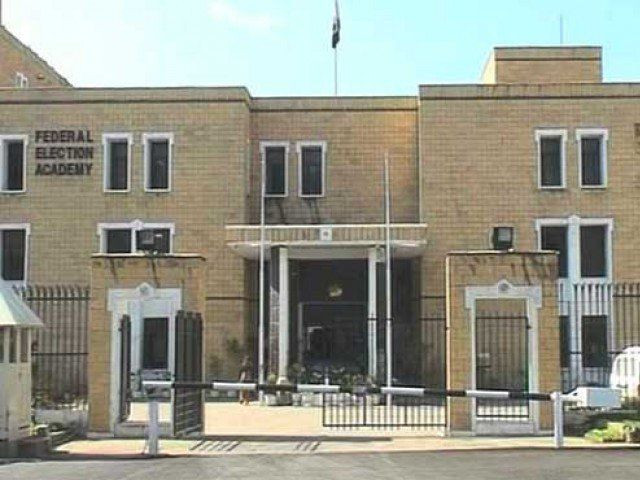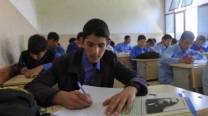Electoral reforms: ECP told to buy electronic voting machines by September
Officials in ECP’s IT wing say that before EVMs are introduced, Nadra should make sure its data is data

Election Commission of Pakistan. PHOTO ECP.GOV.PK
After months of wrangling, a parliamentary panel on electoral reforms on Wednesday directed the Election Commission of Pakistan (ECP) to procure electronic voting machines (EVMs) by September 2016 for experimental use with a view for formal deployment, despite strong reservations from the top electoral body.
“ECP will procure EVMs by September this year and use it in any by-polls,” announced Minister for Climate Change Zahid Hamid, who heads an eight member sub-committee of the parliamentary committee on electoral reforms, in Islamabad on Wednesday. “If the experiment is successful, next general elections will be held through electronic voting.”
After the use of ‘magnetic ink’ as a verification method failed during the 2013 general elections, a number of political parties had demanded electoral reforms, including the deployment of EVMs, to minimise rigging. A parliamentary panel has been deliberating deployment of the machine for months now with the ECP even conducting a few experiments in this regard.
But the proposals reviewed by the sub-committee over the past year had failed to convince it. An experiment conducted by the electoral body during a by-election in NA-19 Haripur, had offered discouraging results.
Despite the reservations, Hamid said the committee had on Wednesday decided to grant its principled approval for the ECP to float tenders of procuring EVMs and using them experimentally in by-polls before the end of the year. Should the experiment prove successful, it would pave the way for their deployment in the 2018 general elections.
Further, the National Database Registration Authority (NADRA) will be installing convertors into bio-metric machines for verification of thumb impressions. Hamid added that a draft of the new election law would be ready within two weeks.
No fool-proof method
While the parliamentary body had issued the orders for EVMs, officials at the ECP warned that a number of kinks still remain in the system.

“We are an implementing body. We have to implement whatever is decided by parliament. But we have strong reservations given the flaws in NADRA’s database,” a senior official of ECP familiar with the technical systems told The Express Tribune.
To validate his apprehensions, he pointed to the August experiment in Haripur where EVMs were deployed at select polling stations.
“Many bio-metric machines did not function. Those that did provided results in only 31 per cent of cases,” the official explained. “This happened despite the fact that Nadra’s staff was operating these machines.”
The official added that in addition to gaps in the technology, the problem also extended to Nadra’s database which does not have fingerprint data for many people who secured their computerised national identity cards before 2004. The flaw was grossly apparent during the 2013 elections when around 70 per cent of all fingerprints could not be verified.
Officials in ECP’s IT wing say that before EVMs are introduced, Nadra should make sure its data is data. “Without accurate data, the exercise will be another disaster.”
Published in The Express Tribune, February 4th, 2016.



















COMMENTS
Comments are moderated and generally will be posted if they are on-topic and not abusive.
For more information, please see our Comments FAQ